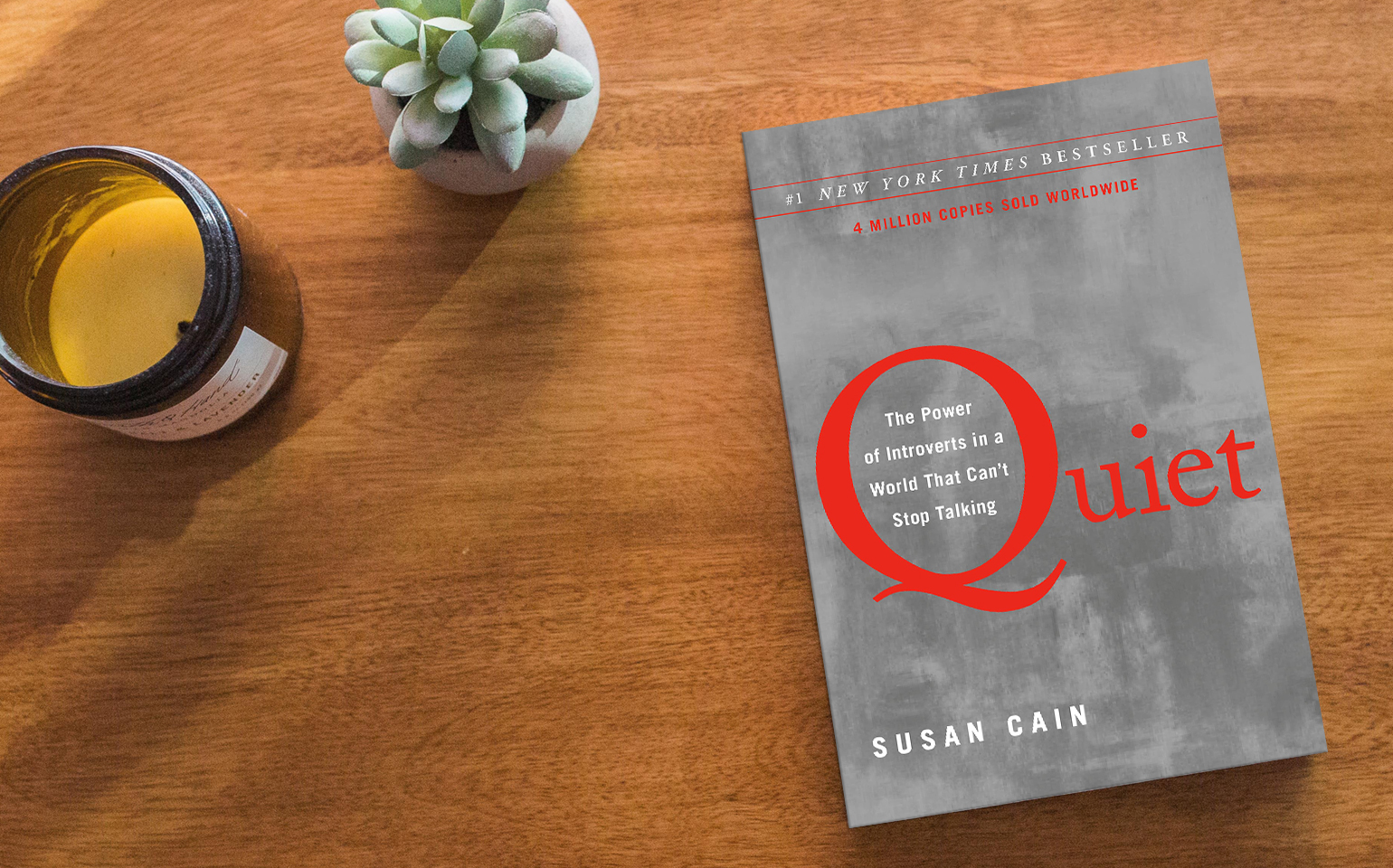
The Importance of Quiet: The Power of Introverts in a World That Can’t Stop Talking
The world has been split, but not in the way you think. There are a million different lines that divide us, and some of the first you’d consider would be class, race, religion, and gender. In her book Quiet, Susan Cain follows one line that is seldom followed: the introvert-extrovert divide.
Quiet is a non-fiction book that explores the psychology of introverts and extroverts. Essentially, an introvert is someone who is drawn to smaller groups over large ones and introspectiveness over the external world, while extroverts are the opposite. Introversion/extroversion exists as a spectrum, with the majority of people lying somewhere between the two extremes. As long as these definitions have existed, the divide has favoured the extrovert side of the spectrum, in what the author calls the Extrovert Ideal, meaning introverts are dramatically undervalued in a world that’s built to please only their extroverted counterparts.
By examining everything from pop-culture to religion, Cain makes a startling discovery: society is actually missing out on a lot when they undervalue introverts.
In her bestselling novel, Cain reveals how this ideal plays out in our daily lives. She introduces us to famous introverts who prove the importance of quiet people, and to systems that try to convince us otherwise. She walks us through experiments that offer surprising results on the nature of both introverts and extroverts, and tells us anecdotes of introverts—whether it be herself or others—whose stories are an uncanny mirror of the feelings and experiences of many quiet people.
I believe we could use this book to help make a world that welcomes introverts and utilizes their strengths. So, to the introvert who never quite belonged, or even the extrovert who is curious about the quiet people in your life, you need to read Quiet.
First, Quiet offers huge relief for introverts. Introvert traits—such as a preference for solitude and a tendency to listen rather than speak—are often seen as shortcomings that need to be filled with extrovert traits. That means that the introverted kid—the one who prefers listening to speaking, or feels drained after a lot of social interaction—has been told their whole life that there is something wrong with them. Cain argues that introversion is not only perfectly normal but also common. Right off the bat, she references studies that suggest that approximately one out of every three people you know are introverts (Cain 3). She also explains that introversion is normal because it relates to the way the brain responds to dopamine. This brain chemistry comes down to genetics, meaning that if you’re an introvert, you were likely born that way. Cain not only confirms that introverts aren’t alone in their feelings but also that those feelings are natural, which is sure to offer some solace.
Cain goes on to explain there is a reason that, despite these facts, many introverts feel guilty about being quiet. That reason is the earlier mentioned Extrovert Ideal. Cain takes us from an ivy-league school to an elementary classroom, and from a church to a conference, ensuring that every reader is able to recognize an example of this ideal in their own lives. For instance, Cain goes to Harvard and meets with one of the school’s introverts. He outlines his schedule, which is both mainly compulsory and mainly social. He tells the author that quiet people like himself have trouble participating, and that his louder counterparts are regarded as better, smarter leaders. To counter this, Cain quickly takes us to an experiment that finds that not only does allowing introverts to participate yield better results but also that although we’re quick to assume that loudness indicates good leadership, that’s not always the case. This part of the book offers an explanation for years of introvert’s guilt that was otherwise unexplainable. More importantly, she assures that introverts are not at fault for their guilt, and that society loses a lot when they guilt introverts into being extroverts.
Cain takes Quiet a step further by revealing what introverts really are. She starts by debunking some common myths. We associate introverts with shy people who like to isolate themselves. This may be true in some cases, but most introverts like spending time with others and have healthy social lives just like extroverts. The only difference is that introverts prefer to have their interactions with fewer people and need to be alone to regain the energy they lost while socializing. Cain also looks into positive introvert traits. The creativity, insight, and independence that is common in introverts are revealed to be vital strengths. For instance, she cites one experiment involving programmers. It found the majority of the highest achievers were those who worked independently. Additionally, thoughtfulness is proven to lead to good decision-making and effective communication.
Cain even finds examples of famous introverts to back her up. Steve Wozniak, co-founder of Apple, credits his breakthroughs on the computer to the time he spent working alone. Former first lady Eleanor Roosevelt had the empathy and thoughtfulness that often comes with introversion, which she used to guide her activism and bring conscientiousness to her husbands’ political decisions. Some of the world’s most famous contributions like the theory of relativity or Harry Potter are introvert’s creations. It’s empowering information, proving that there is strength in quiet.
For many introverts who prefer to retreat to fictional worlds when it comes to reading, a non-fiction book like Quiet might not seem like the way to go. I’d argue that just like a work of fiction, this novel contains lessons, conflicts, and most importantly, characters who you can root for. Only at the end, you might find the character you’re rooting for is yourself: the undervalued yet powerful introvert. If you’ve ever felt like an introvert, you will find in this book the answers to unchecked feelings, the strength in your silence, and the inspiration to be who you truly are.



